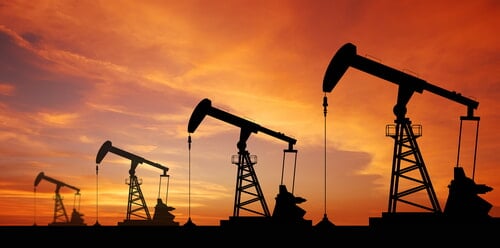Personal Protective Equipment

Exploration, Drilling and Production
The oil and gas industry, especially drilling and production, comes with a lot of hazards, including puncture wounds, crush wounds, face and eye injuries, and more. Wearing personal protective equipment can reduce the risk of severe injuries, regardless of whether you work on an oil rig on land or in the ocean. Even fracking and horizontal drilling offer their own risks. Abolox carries all of the personal protective equipment (PPE) that you need to stay safe while working on oil rigs.
Occupations in Oil Exploration, Drilling and Production
The oil and gas industry has many sub-industries that work within the industry. Anyone working in these industries, as well as in occupations directly in the oil exploration, drilling and production industries, needs personal protective equipment to reduce the risk of severe injuries. Various industries related to oil and gas include:
- Construction laborers and extraction occupations: Workers perform physical labor tasks at construction sites. They use hand tools, transport materials, and repair drilling equipment. Job titles might include laborers, helpers, construction workers, and post framers.
- Control and valve repairers and installers: Workers install, maintain and repair mechanical controlling devices, regulating devices, and other mechanical governors. They also lubricate mechanical parts, repair control devices and install electric meters. Job titles include valve technicians, control valve technicians, and service technicians.
- Rotary drill, service unit and derrick operators: Derrick hands, floor hands, and derrick workers are all titles for those who rig derrick equipment and operate the pumps that circulate mud through the drill holes. These workers repair mud tanks, inspect derricks, and set crown blocks to posts at the top of the derricks.
- Gas plant operators: Gas controllers and plant operators are common job titles for gas plant operators. These workers monitor flammable products, operate plant equipment, and control compressors to maintain a specific pressure on a main pipeline.
- Geological and petroleum techs: These workers gather soil and rock samples, analyze drill cuttings, and monitor well exploration activities. They may also be known as data technicians.
- Industrial machinery mechanics: These workers install, adjust, and repair industrial machines. They weld metal to repair broken parts and repair machines. Their job titles might include industrial mechanics, master mechanics, and fixers.
- Repair, installation and maintenance workers: Maintenance workers, sometimes referred to as lubricators or oilers, maintain and clean the machinery and machinery parts used in the oil and gas industry.
- Material movers: These workers move materials to different exploration, drilling and production operations. They often operate machines and conveyors.
- Petroleum pump system operators, gaugers, and refinery operators: These workers operate petroleum processing and / or refining units. Part of their job duties includes regulating the flow of oil by opening valves, monitoring gauges, and operate pumping and / or manifold systems. Job titles include refinery operator, head operator, gauger and pumper.
- Plant and system operators: These workers operate engines, valves, pumps and generators. They also monitor the input and output to ensure the system is working properly.
- Pump and station operators: Workers, often called pipeline operators, pumpers, or chemical operators, operate the power-driver pumps, whether portable or stationary, to pump oil, gas, slurries, powdered materials, and other liquid materials to and from vessels.
Other workers include rotary drill operators, roustabouts, service unit operators, wellhead pumpers, metal workers, plastic workers, welders and cutters.
Safety in the Exploration, Drilling and Production Industry
Workers in the oil and gas industry need hand protection, including gloves that protect the backs of their hands, puncture-proof gloves and chemical-proof gloves. Those that work on an oil rig in the ocean should also wear slip-resistant gloves.
Additional safety gear includes:
- Safety glasses.
- Goggles. These are great when your workplace sees a lot of winds, such as the ocean or even large open fields.
- Hi-visibility clothing. Even during the daytime, it can be difficult to see co-workers on an oil rig. Workers should always wear hi-vis clothing. Abolox carries hi-vis rain gear and high-visibility flame-retardant clothing.
- Gloves. Choose from water-resistant, puncture-resistant, fire-resistant, puncture-resistant and more.
- Safety rain gear. Make sure your co-workers can see you while you are working in a driving rain.
- Welding clothing. Protect your hands from the hot sparks welding produces.
- Head safety. Hard hats can protect you if something falls from over you or if someone drops something from higher up.
Visit Abolox for PPE and Hand Tools
When you need quality hand tools and PPE for your job in the oil and gas industry, visit Abolox for great prices.